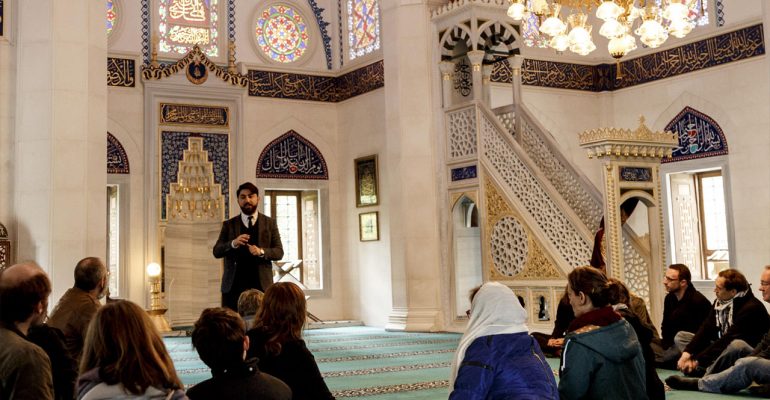“Seeking European Imams Desperately”: An Assessment of the Ongoing National and EU Initiatives
May 19, 2021 2023-05-09 12:47“Seeking European Imams Desperately”: An Assessment of the Ongoing National and EU Initiatives

“Seeking European Imams Desperately”: An Assessment of the Ongoing National and EU Initiatives
The function of imam is often considered the most effective entry point to organize Muslim communities, as Prof. Welmoet Boender, from the Vrije Universiteit Amsterdam, points out in a recent article in the journal Religions. In Europe, imams are often considered a potential bridge builders between Muslim communities and secular-majority societies… if they possess the proper skills to do so. According to Prof. Boender, it means not only the command of the Islamic scriptural sources, legal-ethical traditions and ritual guidance – which provides them with “epistemic authority” –, but also familiarity with social structures, legal frameworks, local customs and languages of European societies.
Several European countries have expressed concern over the leadership of foreign imams and funding of mosques from external sources, considering that this situation hinders integration, allow foreign countries to exercise influence over European Muslims or even propel extremism. Therefore, the training of imams to make them cognizant of the “local” European values, has been a recurrent debate in several European societies.
On 2 October 2020, French President Emmanuel Macron announced a new law that includes several measures to combat “radical Islamism” and terrorism. These include strengthening control over foreign funding of mosques and ending the system of imams being sent from abroad (in the case of France, primarily from Turkey, Morocco and Algeria) in order to put an end to what he calls, “consular Islam”.
Macron also called for the creation of a “charter of principles” defining an “Islam of France”, in order to ensure that Muslim religious leaders and organizations align with the core values of the French Republic – including secularism. The document was signed on January 2021, (after months of tense negotiations between Muslims’ representatives and French authorities), by five out of the eight federations within the French Council of the Muslim Faith (CFCM). The CFCM, which acts as the de facto representative of Muslims to the French government, still has to agree on setting up a National Council of Imams to train French imams… Similarly, the first imam training course in Belgium started in 2019, launched by the University of Leuven with the cooperation of the Muslim Executive – the official body representing Muslim communities in the country – and the federal government. The course, given in Dutch and Arabic, consists of two years of university and four years of theological training, and upon completion the graduate imams receive a certification from the federal government. The training of imams was initially raised in the Parliamentary report of the committee that looked into the terrorist attacks in Brussels and Zaventem in March 2016, with the hope it would counter foreign Islamic influence and prevent the radicalization of young Belgian Muslims.
Source: Euro-Islam.info








